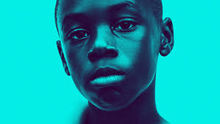Orphan Black
- Diane Coulston
- Feb 8, 2016
- 4 min read

Sci-fi isn’t my usual genre of choice when it comes to a good old Netflix binge, but I had heard interesting things about Orphan Black and a female-dominated cast is always going to appeal to me. In this case, the cast was dominated by one actress in particular who plays more characters than the rest of the cast put together. Seeing as the story is centred on a group of clones, it is easy to see why.
There’s a lot to like about Orphan Black. Unlike many network television programmes, it is inclusive of diverse characters and integrates them into the story instead of ‘othering’ them or sensationalizing their difference. Sure, Felix – our central character’s foster brother – is outrageous and extroverted, but his character is complex and he isn’t a stereotypical ‘gay best friend’. He is a character who is gay, not a gay character. Likewise, Cosima’s lesbianism isn’t a point of titillation; it is simply a part of her story. Art, the cop, is the sole black character, but he isn’t cloaked in the tokenism that we often see in film and television when a white cast has a sole ethnic minority included as a gesture of inclusiveness. Art is serious, committed to finding out the truth, but flexible in what ‘doing the right thing’ looks like.

While I enjoyed a lot of the peripheral aspects of the programme, a few episodes into the series I found myself struggling with what I considered a laziness in tying off loose ends. Too many questions were going unanswered and the presence of a vague all-seeing ‘bad guy’ was starting to feel rather trite. The mysterious Olivier seemed too much like a caricature of an evil mastermind and I found myself rolling my eyes at the clunky metaphors that were applied to him. A tail? Really? We get it! However, just as I was starting to grow dejected and doubt the rave reviews I had read about Orphan Black, the story was quickly tightened and tidied up in the space of an episode. Olivier is placed in context and his exaggerated persona is shown to be an intentional plot device.
At this turning point in season one, questions start to be answered, further characters are introduced and new information is revealed about existing characters. These unexpected twists are ones you don’t see coming and cause the watcher to question the loyalty and trustworthiness of every character. Nothing is taken for granted.
At the centre of it all are the clones. The number of which continues to be questioned as more appear and disappear throughout the season. These clones are all portrayed by a single actress – Tatiana Maslany. It is her varied, intense performances that are, in my opinion, the very best thing about Orphan Black. Maslany is able to take on the complex personality differences of each character and manifest them in mannerisms, accents, facial expressions, and alike. The viewer quite easily forgets that it is one actress portraying each character and this enables the story to move seamlessly from character to character and yet stay on track. Without her accomplished performances the series would fail completely. With the wrong actress it simply would not work, as the interactions of the many clones would become too distracting.

Maslany’s performance is aided in no small part by excellent wardrobe, make-up, and post-production teams. The clones’ individuality has been carefully constructed in their physical appearances. The soccer mom and the scientist are costumed in vastly different ways without being over the top. Similarly, in order to reinforce difference each clone has subtle musical accompaniments. They don’t have their own theme song; rather a set of bars is woven into the various soundtracks that denote the focus on a particular clone. Helena, the most troubled of the clones, has the most notable sound identity with a sinister couple of notes punctuating the scenes in which she wrecks havoc. The music isn’t so obvious to be an explicit instruction; it is more a gentle aid with which the makers of Orphan Black nudge the mind of the viewer.
I fear the series has been dismissed as ‘women’s television’ as typically is the case when a female cast takes centre stage. This generalization sells Orphan Black short, as it is a complex story with an intriguing mix of sci-fi, crime, and thriller genres. Maslany deserves a lot more recognition for her work in the series than she has thus far received and the series itself merits more respect than a niche following by gif-making tumblr users.

Unlike other Netflix specials I have watched, I am eager to watch season two and find out what will happen to the clones. It may be the first sci-fi series I have ever really enjoyed watching, probably due to its lack of aliens and focus on not-so-implausible scientific methods. I gave the series a go despite reluctance and skepticism and I hope others will too.


























Comments